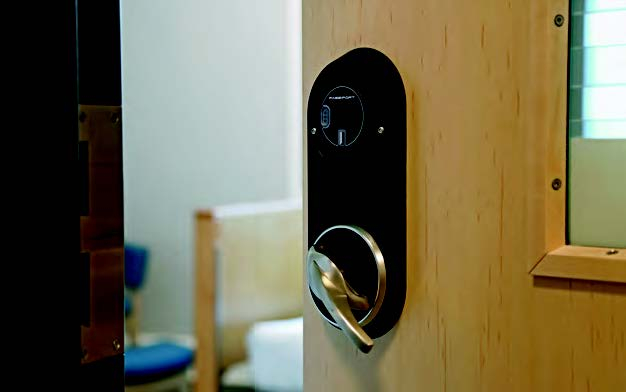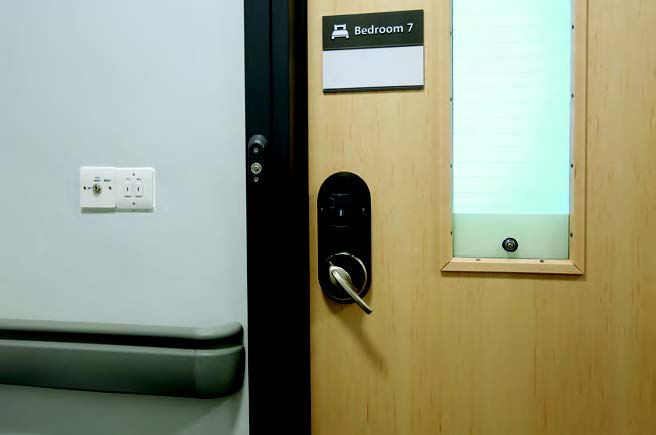
An exploration of how the very-latest access control solutions are helping to enhance mental health settings for patients and staff.
Imagine staying in a hotel in which the only way you can lock your room is to return to reception and someone will accompany you back and lock it for you. Few people would stay given this restriction.
Yet, in mental health settings, this is an extremely-common policy for patients.
A scenario that creates security fears
Philip Ross, commercial director at Safehinge Primera, explains: “In mental health units people are already in a disturbed and fragile state of mind. Not being able to secure their own space creates insecurity. Patients fear someone has been in their room, perhaps stolen something, when it’s just been misplaced under the duvet. This is how easily arguments can flare up and there is the potential of physical fights between service users.”
In mental health environments across the UK mechanical key-operated locks are more common that you would imagine. And patients are not given keys as these could be used as tools to tamper with locks or as weapons to cause harm.
Giving mental health patients increased control over their environment can reduce anxiety and incidents of violence.”


Reducing fear through modern access control solutions
Formal Care Quality Commission (CQC) inspections are increasingly describing this denying of mental health patients the control over their encironments as a restrictive practice.
Ross said: “So there is a trend in mental health units is to try and normalise the environment as much as possible. Electronic access control systems, such as smart doorsets, are helping with this.”
Modern electronic keys are designed to be ligature resistant and are coupled with wristbands or fobs, rather than mechanical keys. This enables staff to make changes more easily in order to control who can access which areas.
Empowering patients
Ross said: “Mental health operators have asked us to upgrade bedroom doors with electronic access control solutions in order to give patients more independence.
“And with live audit trail and remote control of permissions, it’s much easier for clinical staff to monitor and control.”
Wireless solutions
Hardwired electronic systems, are almost impossible to retrofit on a live ward so they are restricted to new builds or major refurbishments. This is not the case with wireless technology systems which can easily be retrofitted within a live ward environment.
Ross explains, “Our latest systems use wireless technology with battery-operated locks on the doors. “These are far easier to install and maintain as you don’t have to chase in or deal with hidden cables. They also have a typical battery life of between 1-2 years, so it’s very much the direction we are seeing the market going in.”
Gaining access
Ross said: “A lock will commonly be tampered with to prevent staff access and to give a patient more time and a greater chance of success in causing damage or harming themselves or others.
“What’s unique about Safehinge Primera locksets is that while patients can have their own key, they are also designed with a unique override feature. This ensures staff access during an emergency – something every mental health facility is seeking, yet something few electronic locks provide.
“It’s the age-old problem in mental health that people go with what they know – mechanical locks. But more mental health providers are adopting electronic locksets and recognising the positive impact these systems can have.